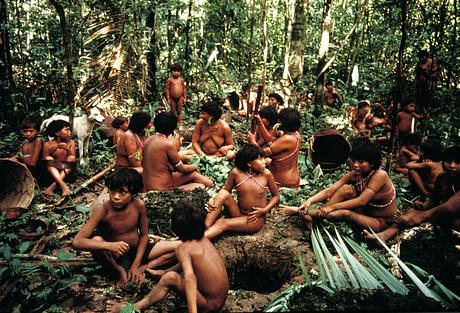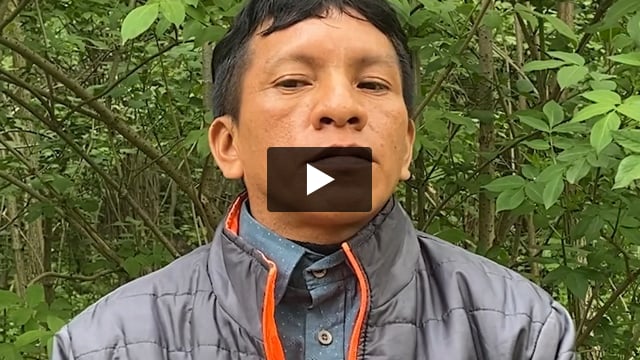Survival’s ‘dangerous’ ‘self-destructive’ ‘falsehoods’
February 14, 2013
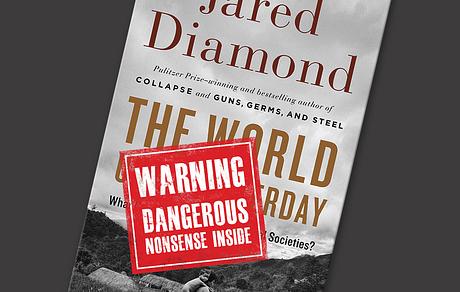
This page was last updated in 2013 and may contain language which is now outdated.
On February 4 2013 Jared Diamond was interviewed on BBC TV about his new book ‘The World Until Yesterday’. He would not agree to a Survival representative being there to debate his points. He has also given many other interviews. We have reproduced some of his claims below, and our responses to them:
• Diamond: There are anthropologists and people devoted to traditional societies who want to deny the unpleasant and unhappy things about them.
Survival: Who are these anthropologists who are supposed to be denying the ‘unpleasant’ things about tribal societies? Where in Survival’s material can such denials be seen? Survival has explicitly acknowledged that tribal peoples sometimes practice infanticide, for example.
• Diamond: There are many scholars who have measured the frequency of violence in dozens of traditional societies and dozens of state societies and the universal conclusion is that the probability of a violent death is about ten times higher on the average in traditional than state societies.
Survival: This is not the ‘universal conclusion’. In fact, Diamond’s thesis rests on the work of a small number of academics: Robert Keeley, Samuel Bowles, Steven LeBlanc and a few others. Many others, such as John Chapman, Jonathan Haas, Douglas P. Fry, Nick Thorpe, and John and Patricia Carman, to name just a few, disagree.
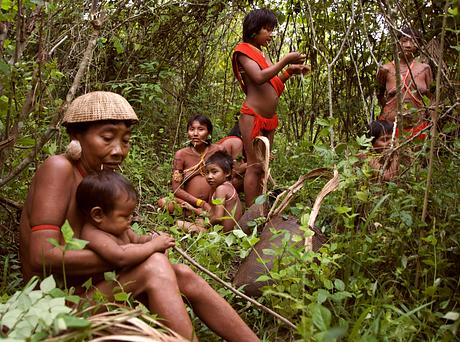
• Diamond: The universal finding, well, the finding, is that, when there’s European contact … in the long run the level of violence [in ‘traditional societies’] almost always decreases.
Survival: This utterly discounts the catastrophic effects European colonization has had on tribal peoples across the world, and ignores the tragically long list of tribes whom it has wiped out. To assert, in the face of this well-documented genocide, that European contact lowers the level of violence amongst tribal people sounds remarkably like the colonial era justification for ‘pacifying’ the ‘savages’ – that ‘we’ were needed to bring them peace.
• Diamond: They’re resting their policies on falsehoods. Instead of coming straight out and saying ‘it is morally unjust to mistreat any Indigenous people’ instead they are saying ‘you should not mistreat Indigenous people because they’re violent [This must be a slip of the tongue, he presumably means ‘non-violent’]. But unfortunately, they are violent. And so if you found your politics on something false, the truth is going to come out.
Survival: Where in Survival’s materials are the ‘falsehoods’, and where do we say tribal peoples should not be mistreated because they are non-violent?
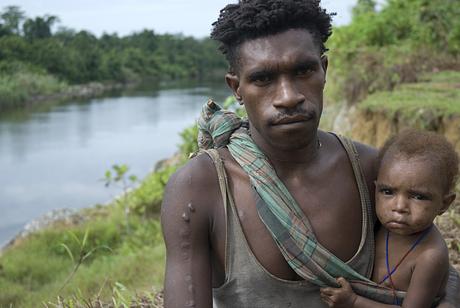 © Survival International
© Survival International
• Diamond: Survival International has based their arguments not on the strong compelling moral argument, but on a claim that traditional people are not violent… what is really dangerous, is the position of Survival International, because it’s advancing a false argument for my own goal. And so above all I’m saddened by this self-destructive policy of Survival International.
Survival: We have never claimed that tribal peoples are not violent. Diamond explicitly says (1) most tribal peoples live in a state of constant warfare, (2) that they are more violent than we are and (3) that state intervention is beneficial for them.
We say (1) can certainly never be proven, our experience does not bear it out, and many experts disagree with Diamond. We see no evidence which really supports (2), just some which is contrived to appear to do so. We believe (3) is utterly wrong and that the reverse is true.
We are dismayed that Mr Diamond refused to debate this issue with us, as we believe his arguments are false, and need to be challenged, which we will continue to do.
Note to editors:
On January 30 Survival released a condemnation of Jared Diamond’s book followed by Papuan leaders calling for Diamond to apologize.
Read more about why Jared Diamond is wrong


